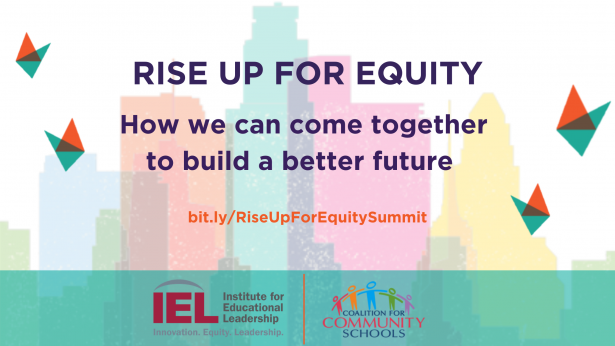Building a New Normal Together: A Virtual Summit on Community Schools and Family Engagement
20 days, 80 sessions, 100 hours, and one giant opportunity for more than 2,000 participants to come together and share their collective knowledge and experience, to inspire each other in these uncertain, challenging times. That’s what our first ever virtual summit provided for a diverse range of participants throughout the entire month of June!
The summit was designed to be a field-building, personal and professional development experience meant to reinvigorate the spirit of attendees and equip them with confidence and capabilities in knowledge areas such as, systems change, collaborative leadership, relationship building and trust powerful learning, innovative inclusion, leadership and advocacy, the whole child and data for impact – but it was so much more than that.
What was made clear by all of our attendees and speakers that took part in the summit was that there is a need, perhaps now more than ever, to come together to create a plan for the future that ensures we are ready to face a new normal. Dr. Pedro A. Noguera, Distinguished Professor of Education at the Graduate School of Education and Information Studies and Faculty Director for the Center for the Transformation of Schools at UCLA, who joined as at the summit as a plenary speaker, put it starkly: “normal was homelessness on our streets, it was mass incarceration, it was food insecurity for too many children. We can’t return to normal – we have to use this as a moment to move to something better.”
Normal was not adequately serving our students and young people in our communities. As Ralph Smith, Managing Director at the Campaign for Grade-Level Reading, stated at our plenary session on elevating the learning loss recovery, our mission should be “building back better.” With our country now facing three pandemics that will forever alter the status quo, that goal is nothing short of imperative.
Firstly, our schools and learning communities were unilaterally altered when the COVID-19 pandemic forced delays, cancellations, and closures across the country. Distance learning, closing the digital divide, and work-life balance are all things that we now have no choice but to prioritize and make part of our everyday strategies. With plans to re-open schools in the fall up in the air, and uncertainty around access to after school programs, libraries, recreation centers, camps, and other community hubs, much of the summit offered expert insights and skill-building activities meant to help us plan, prepare, and prosper to ensure that no matter what the pandemic brings, we can still support our students and provide services that increase access to opportunity and advance equity for all people of all ages, races, abilities, and geographic location.
Second, with the pandemic exacerbating existing inequities across education, healthcare, the economy, and beyond, the work we do at the community level is imperative to helping one another survive and thrive. Many of the summit’s sessions portrayed how the infrastructure created by community schools and family community engagement prepared us to provide rapid response solutions to ensure children and families didn’t go hungry, that students could still continue learning, that community members were educated about the dangers of the coronavirus, and much more. These discussions and resources about how we can continue successfully providing these collective supports will be useful to all of us in the coming months.
The other common thread throughout much of the summit was that it is also at the community level that we must step up like never before to help stem systemic racism – that has always existed – but which reared it’s ugly head in Minneapolis, Minnesota when George Floyd was murdered by a white police officer. The shameful killing of Mr. Floyd was just one of the latest examples of police brutality that captured the attention of our nation, but was also a boiling point that has newly invigorated the fight to end racial injustices that permeate all reaches of the United States and the systems that rule it.
We all have a role to play in ending prejudice and creating change. By doing our part in our communities and schools, we can reshape the systems that enable racism and white privilege. Working together with everyone from parents to politicians, we can deepen our collaboration and authentically engage community partners like hospitals, police departments, mental health providers, food banks, coaches and more to help us make equity a constant goal.
